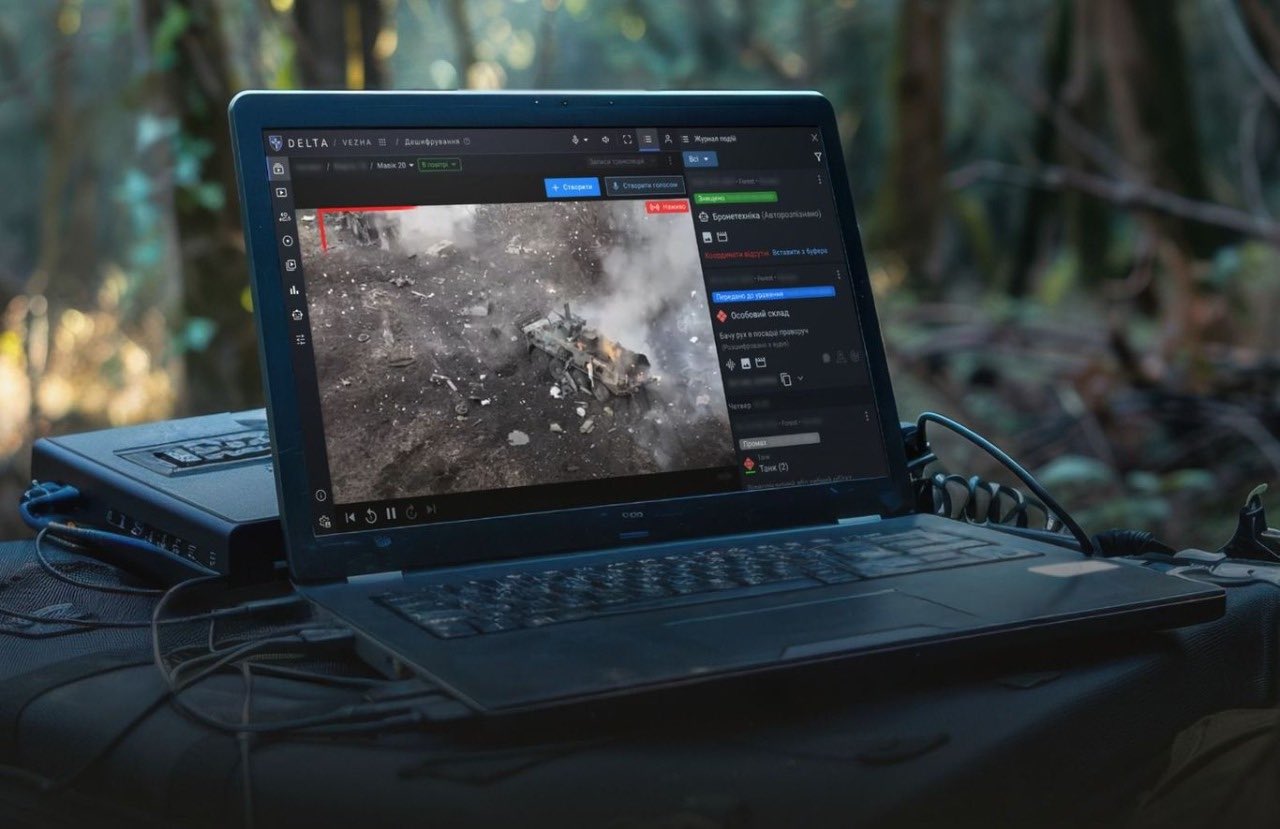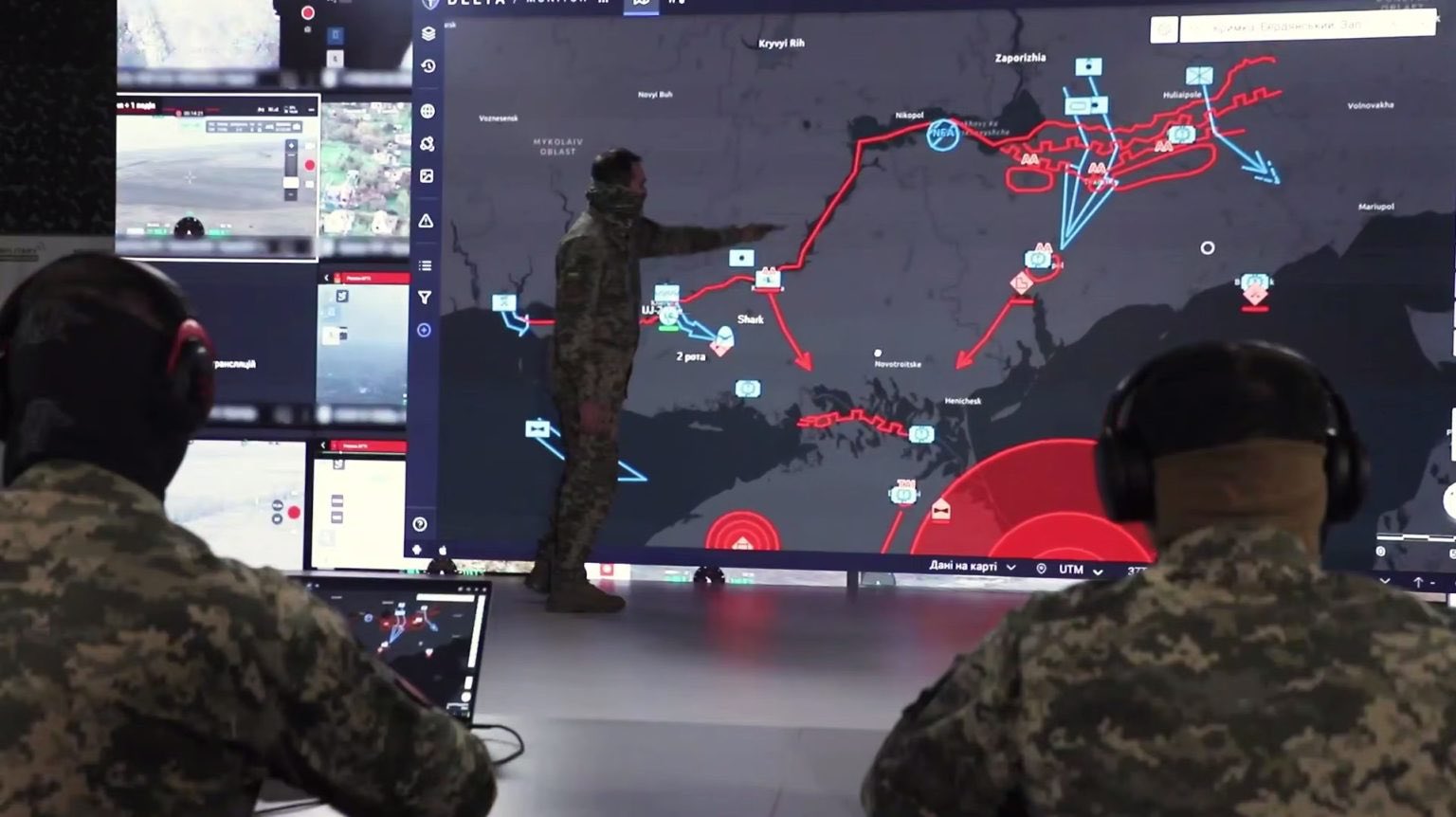Skip to comments.
Attack On Europe: Documenting Russian Equipment Losses During The 2022 Russian Invasion Of Ukraine (2 year anniversary)
ORYX ^
| Since February 24, 2022 and daily
| ORYX
Posted on 02/24/2024 5:59:01 AM PST by SpeedyInTexas
This list only includes destroyed vehicles and equipment of which photo or videographic evidence is available. Therefore, the amount of equipment destroyed is significantly higher than recorded here. Loitering munitions, drones used as unmanned bait, civilian vehicles and derelict equipment are not included in this list. All possible effort has gone into avoiding duplicate entries and discerning the status of equipment between captured or abandoned. Many of the entries listed as 'abandoned' will likely end up captured or destroyed. Similarly, some of the captured equipment might be destroyed if it can't be recovered. When a vehicle is captured and then lost in service with its new owners, it is only added as a loss of the original operator to avoid double listings. When the origin of a piece of equipment can't be established, it's not included in the list. The Soviet flag is used when the equipment in question was produced prior to 1991. This list is constantly updated as additional footage becomes available.
(Excerpt) Read more at oryxspioenkop.com ...
TOPICS: Military/Veterans
KEYWORDS: 0killthisthread; 0putinsfolly; 0putinswar; 1637borders; 3daywar; agitprop; alfredeblitz; americalast; angrykeywordtroll; anotherputinfail; anydaynow; anydaynowputinwins; anydaynowrussiawins; anydaynowukrainewins; assistantdemsonfr; attackoneurope; beaubothebsartist; beauzo; bidenswar; bobomaximus; breevingroom; byepif; byespeedy; cantbreev; cheesymaximus; crazyivan; dailydeathfap; dailypropaganda; deadthread; deathcult; deepinthespamforest; delusionalzeepers; demyanganul; dimwit; dippythemelon; dualcitizenssuck; escalation; fishiemaximus; foreigntrolls; foreigntrollsonfr; formersovietofficers; freeploader; freeploadingspammer; gabbagabbahey; ghoulishdelight; gleefulnosegold; globohomo; goodriddance; hopium; irynazarutska; itsoveriwasright; jonboy; jonboyputinlover; jonputinbot; keiththedimwit; kievstronk; liberalatpost7819; liedaboutleaving; melon; melonballsforever; melonlovesputin; melonlovesrussia; melonmemewarrior; melonmlrs; motherpif; muscovite; nato; omgputinputinputin; oyveygoyim; paidazovfans; paidazovtrolls; paidrussiantrolls; pancakemaximus; phdft; pifpouf; pifpuffs; planetzeep; polygamy; propagandareturns; put; putin; putinsfolly; putinstarted; putinswar; russia; russiandelusions; saintvolodymyr; siloviki; slaviccivilwar; slavictrolls; snufffilmsonfr; snufffilmtx; snuffpornforzeepers; snuffyfromtexas; spammyintexas; speedomaximus; speedycameback; speedyhadenough; speedyintroll; speedyisaliveandwell; speedyisdeadandfried; speedylied; stankazzintx; stankazztexicunt; staygonethistime; stenrynning; stinkstankstunkazz; stpetersburgtrolls; talkingtomypif; thisthreadisdead; tippecanoeandpiftoo; toldyouso; tothelastrussian; tothelastukrainian; ukraine; unhealthyobsession; usaidcheckbounced; usaidtrolls; vladtheimploder; warporn; wellbye; wildberry; yostanky; yurpstronk; zeepercirclejonk; zeepercreepers; zeeperdeathcult; zeeperhomeworld; zeeperloveazov; zeeperpr0n; zeepers; zeepersjustwannazeep; zeeperslovedeath; zeeperslovevindman; zeepersworshipdeath; zeepervictoryparade; zeepharder; zeeploaders; zeepyintexas; zipadeedoodah; zot; zottedintexas; zottyintexas
Navigation: use the links below to view more comments.
first previous 1-20 ... 15,521-15,540, 15,541-15,560, 15,561-15,580 ... 22,401-22,407 next last
To: BeauBo; PIF; gleeaikin; nuconvert
The reason for President Ilham Aliyev’s absence from the Victory Parade to be held in Moscow on May 9 has been revealed. Axar.az reports that APA was able to learn some of the factors that influenced the Azerbaijani leader's cancellation of his visit to Moscow. It should be noted that, although 5 months have passed since the crash of the AZAL passenger plane, no operational investigative measures have been taken by Russia, nor have those responsible for this incident been found and brought to justice.
At the same time, it was recently confirmed that cyberattacks on a number of Azerbaijani media resources were carried out from Russia. Moscow has not clarified this issue either. In addition, a few days ago, Azerbaijani parliament member Azer Badamov was banned from entering Russia, detained at the airport in Moscow and deported. The Russian side has not issued any substantiated statement on the issue. All these factors are reported to have influenced the postponement of the Azerbaijani President's visit to Moscow.
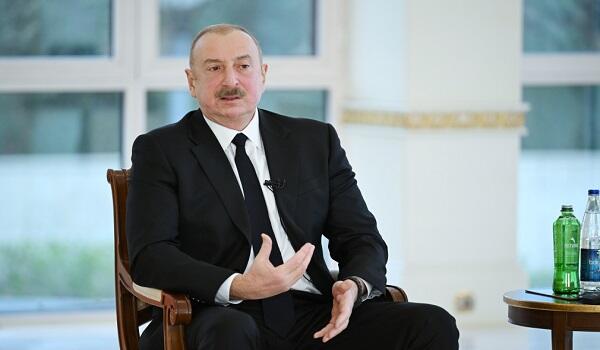 https://axar.az/news/gundem/973298.html
https://axar.az/news/gundem/973298.html
Кремлевская табакерка:
Aliyev did not fly to Moscow because of Kadyrov
The President of Azerbaijan refused to attend the 80th anniversary of the Victory in Moscow. On the same day, Vladimir Putin held a meeting with the head of Chechnya, Ramzan Kadyrov. It would seem that these are two separate news items, but in fact they are not.
“Aliyev has long been demanding that Kadyrov be punished for the story of the downed AZAL plane. In Baku, they expected that, given Kadyrov’s recent statement and the deterioration of his position, Vladimir Vladimirovich would decide to fire him,” a source in diplomatic circles explains the situation.
Instead, the Kremlin decided to show force, and the president personally met with Kadyrov “to learn about the socio-economic situation in Chechnya.” It is clear that the meeting discussed completely different things (we wrote that Ramzan Kadyrov could be fired in the next two months ).
“Aliyev made it clear that he will not stand at the parade next to the killer of Azerbaijanis (and it is Kadyrov who is blamed in Azerbaijan for the Baku-Grozny flight disaster ),” a source familiar with the situation told us.
We will tell you about Kadyrov’s future and his conversation with the president later.
https://t.me/kremlin_secrets/5636
15,541
posted on
05/07/2025 12:38:59 PM PDT
by
AdmSmith
(GCTGATATGTCTATGATTACTCAT)
To: JonPreston
Victory day parade:
Azerbaijan pulled out today, as did Laos. Down to 20, if you count non-nations like Abkhazia, Palestine or Republika Srpska.
Burkina Faso still planning to attend, but not North Korea or Iran or India or the UAE.
To: JonPreston
The Clayton, Sidney, Muhammad and Jugdish of countries...
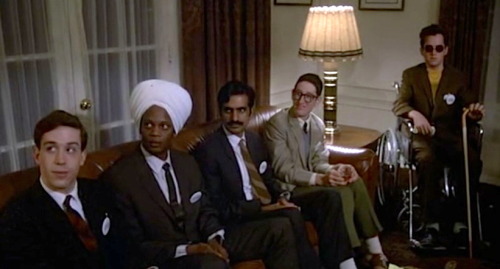
15,543
posted on
05/07/2025 12:47:11 PM PDT
by
dfwgator
(Endut! Hoch Hech!)
To: dfwgator
To: BeauBo
15,545
posted on
05/07/2025 1:16:00 PM PDT
by
AdmSmith
(GCTGATATGTCTATGATTACTCAT)
15,546
posted on
05/07/2025 1:21:40 PM PDT
by
AdmSmith
(GCTGATATGTCTATGATTACTCAT)
To: AdmSmith
Russian oil revenues are down, and prospects for the rest of the year are bleak for them.
OilPrice.com:
“Crude oil futures tumbled over the past week, falling more than 6% as concerns over weakening global demand and a resurgent supply outlook weighed on sentiment. West Texas Intermediate (WTI) briefly hit a low of $56.39 before recovering to $59.24 by Thursday’s close. While dip-buying provided short-term support, the underlying market tone remains distinctly bearish as fundamental pressures intensify.
China Demand Slowdown Fuels Bearish Sentiment
Fresh economic data from China delivered a major blow to oil bulls. The country’s official manufacturing PMI slumped to 49.0 in April, signaling contraction and raising alarm over the health of the world’s largest crude importer. Of particular concern was the new export orders index, which plunged to its weakest level since 2012 outside of pandemic anomalies. Analysts responded by slashing full-year growth forecasts to just 3.5%, casting doubt on sustainable Chinese demand.
Though China’s March crude imports surged, analysts argue this was driven more by pre-sanctions stockpiling than any uptick in consumption. With Beijing’s fiscal stimulus measures struggling to gain traction, traders are increasingly skeptical of China’s ability to sustain meaningful crude demand growth in the near term.”
To: JonPreston
To: JonPreston
To: JonPreston
To: PIF
🍈
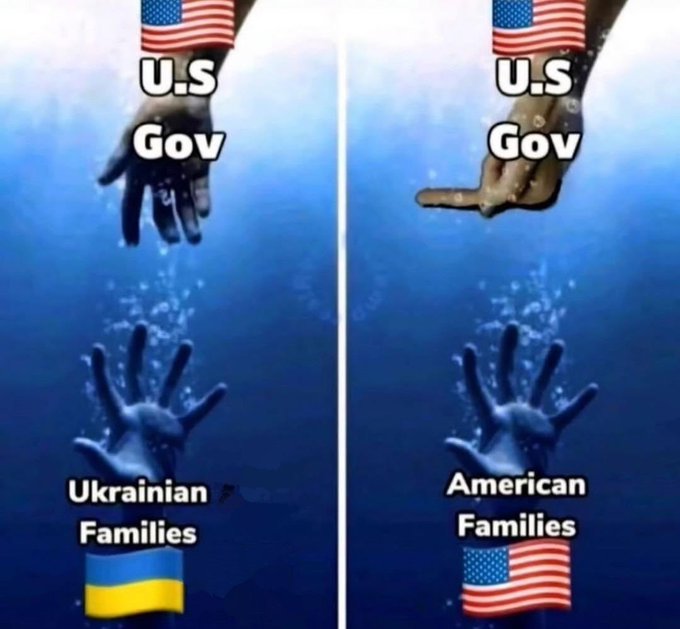
To: BeauBo
Poor you know who, throwing a spamming tantrum because his mate vlad is skipping his own party😂
To: blitz128
Vlad is out too?
Not even sending the body double?
Moscow under siege.
To: blitz128
Bessent agrees Putin is a war criminal.
Vance says Russia ‘asking for too much’.
Kellogg says the only impediment to progress is the president of Russia.
Clearly, the rhetoric from the Trump Administration has changed, and the whole team is on board.
To: gleeaikin; FtrPilot
Russian Offensive Campaign Assessment, May 7, 2025
US officials acknowledged Russia's continued intransigence toward any ceasefire agreement in Ukraine while reiterating that Ukraine remains committed to US President Donald Trump's proposed comprehensive 30-day ceasefire. US Special Envoy to Ukraine General Keith Kellogg stated on May 6 that Russian President Vladimir Putin's refusal to agree to a 30-day ceasefire is the main impediment to establishing peace in Ukraine and that Russia will be hurt if the parties do not agree to a comprehensive ceasefire, as “Russia is not winning the war.”[1] Kellogg noted Russia's failure to secure positions on the west (right) bank of the Dnipro River in Kherson Oblast, its inability to reach Kyiv and Odesa cities, and Russian forces’ high attrition rates — all in line with ISW’s assessment that Russia's battlefield situation has deteriorated since 2022.[2] US Vice President JD Vance stated on May 7 that Russia is “asking for a certain set of requirements” and “concessions in order to end the conflict,” but that the United States thinks that Russia is “asking for too much.”[3]
Kellogg reiterated that Ukraine has agreed to a renewable comprehensive sea, air, and land ceasefire for a minimum of 30 days and that Ukraine is willing to immediately sign the agreement.[4] Kellogg stated that Ukraine is prepared to accept a “ceasefire in place” that will require both Russia and Ukraine to withdraw 15 kilometers from the current frontline in order to establish a 30-kilometer demilitarized zone that could fall under an unspecified monitoring mechanism. Kellogg stated that members of the UK- and French-led Coalition of the Willing are willing to deploy a “ceasefire force” west of the Dnipro River that will patrol and reinforce the comprehensive ceasefire. Kremlin Spokesperson Dmitry Peskov responded to Kellogg's statement on May 7, claiming that Russia has not received any Ukrainian proposals to establish a demilitarized zone.[5]
Russia is likely attempting to prolong and delay discussions about a comprehensive ceasefire to obfuscate its continued rejection of the United States’ ceasefire proposals. ISW continues to assess that Russia likely remains opposed to any sort of enforcement or monitoring mechanisms, as Russia would likely weaponize the absence of such mechanisms to flood the information space with unsubstantiated claims of Ukrainian ceasefire violations, as it has done before.[6] The Kremlin has also repeatedly outright rejected the prospect of European peacekeepers in Ukraine, claiming that such deployments would be unacceptable for Russia.[7] Russia remains committed to its long-standing effort to prolong peace negotiations in order to make battlefield gains and attempt to secure additional concessions from the United States.[8]
Ukrainian forces likely recently advanced across the international border into southern Tetkino, Kursk Oblast, amid continued limited Ukrainian attacks in the area. Geolocated footage published on May 6 shows Russian forces conducting an airstrike against a building in southern Tetkino (southwest of Glushkovo), indicating that Ukrainian forces likely seized positions in Tetkino.[9] Russian milbloggers claimed on May 6 that Ukrainian forces seized up to two streets in southern Tetkino and continued to claim on May 7 that Ukrainian forces maintain positions within the settlement.[10] Some Russian milbloggers claimed that Russian forces, including elements of the 56th Airborne (VDV) Regiment (7th VDV Division), pushed Ukrainian forces out of Tetkino, however.[11] Russian milbloggers claimed that Russian forces repelled limited Ukrainian mechanized assaults against Tetkino and Novyi Put (east of Tetkino along the international border) on May 7 and that Ukrainian forces continue efforts to use mine-clearing equipment to create paths through Russian minefields in the area.[12] One milblogger claimed that Ukrainian forces seized Novyi Put, but other milbloggers claimed that Russian forces repelled Ukrainian assaults in the area.[13] ISW has not observed geolocated footage indicating that Ukrainian forces have entered Novyi Put. Elements of the Russian 98th VDV Division are reportedly operating near Tetkino.[14]
Russian authorities will likely test their ability to completely disconnect large areas of Russia from the internet on May 9 under the guise of protecting Russian Victory Day celebrations. Officials in the republics of Chuvashia and Tatarstan and in Voronezh and Tver oblasts warned on May 7 that authorities may restrict mobile network usage to “ensure security” on May 9.[26] Kremlin Spokesperson Dmitry Peskov warned on May 7 that Moscow City and Oblast authorities may place “limitations” on mobile internet operation during Victory Day celebrations “for obvious reasons” and stated that Russians “must treat this with absolute understanding.”[27] Several Russian banks and internet giant Yandex warned that the disconnection will likely affect Russians’ access to banking, taxi, courier, and public transportation services, particularly in Moscow City and Oblast.[28] Russian authorities have been periodically testing their Sovereign Internet system, which allows Russia to completely disconnect itself from the global internet and increasingly censor Russians’ ability to communicate and access information.[29] Reports of significant Russian internet outages have increased in the first months of 2025, and Russian authorities likely seek to take advantage of the May 9 holiday to conduct a widespread test of the Sovereign Internet system without encountering significant opposition from Russians.[30] The Kremlin also likely seeks to prevent Russians from circulating imagery and footage of damage and fires from any possible Ukrainian long-range strikes on May 9 to avoid shattering the facade that Russia's victory in Ukraine is near on Victory Day itself — even though Russia has no significant battlefield successes to flaunt for the 2025 holiday.[31]
Russian authorities have already tested the ability to temporarily disconnect from the internet during recent Ukrainian long-range drone strikes against Russia and likely intend to informationally link these planned May 9 disconnections to actual Ukrainian drone strikes as part of efforts to mitigate any opposition to the disconnection ahead of May 9. Russian media reported that over 30 Russian cities, including in Yaroslavl, Tver, Moscow, Nizhny Novgorod, Tula, Leningrad, Kaluga, and Kursk oblasts, experienced difficulties connecting to the internet during the Ukrainian drone strikes on May 7 and that all of Saransk and several other settlements in the Republic of Mordovia were completely disconnected from the internet.[32] Moscow City residents have been complaining about widespread mobile internet outages since May 5, which Russian authorities have explained as preparations for the May 9 Victory Day celebrations.[33] A Russian Telegram source claimed on April 25 that Russian authorities shut down mobile internet access in occupied Crimea due to Ukrainian drone strikes and alleged that the measure was ineffective, only causing issues for Russian authorities who rely on the internet for communications.[34] Russian authorities will likely continue disconnecting large areas of Russia from mobile internet networks during Ukrainian long-range strikes to continue testing the Sovereign Internet system and, secondarily, prevent Russians from immediately circulating reports, imagery, and footage of the results of these Ukrainian strikes.
Russian President Vladimir Putin and Venezuelan President Nicolás Maduro signed the Russia-Venezuela Strategic Partnership and Cooperation Agreement on May 7.[35] The agreement addresses enhanced defense cooperation and coordination; the “legacy and falsification” of colonialism; arms control and non-proliferation, including in space; organized crime and internationally sponsored terrorism; international information security and the regulation of the information space; and energy and economic cooperation. The agreement notably includes a provision for the development of military-technical cooperation between Russia and Venezuela. This strategic partnership agreement coheres with Russian efforts to strengthen relations with Venezuela over the past several years, in large part to contest US influence in the Western hemisphere and to paint Russia as a competitive and capable world power.[36] Russia and Venezuela previously signed 17 agreements, including eight strategic-level agreements, in November 2024 that include intelligence sharing, counterespionage, drone use, and petroleum technologies.[37] Maduro is in Moscow for the May 9 Victory Day celebrations, and Russia is likely attempting to showcase its allies, partners, and diplomatic successes to international audiences.[38]
https://www.understandingwar.org/backgrounder/russian-offensive-campaign-assessment-may-7-2025
15,555
posted on
05/07/2025 10:52:51 PM PDT
by
AdmSmith
(GCTGATATGTCTATGATTACTCAT)
To: BeauBo
15,556
posted on
05/07/2025 11:00:23 PM PDT
by
AdmSmith
(GCTGATATGTCTATGATTACTCAT)
To: FtrPilot; blitz128
Day 1,169 of the Russian invasion. 1,200 [average is 822/day], i.e. more than 50 Russians and Norks/h. Vehicles and fuel tanks more than 190% and artillery more than 110% above average. Motorcycles are not counted yet.

15,557
posted on
05/07/2025 11:11:23 PM PDT
by
AdmSmith
(GCTGATATGTCTATGATTACTCAT)
To: PIF
Кремлевская табакерка
The Kremlin Wants to Increase the Birth Rate in Russia with the Help of Air Defense
Sources in the Presidential Administration responsible for demographic issues told us about a new idea that could increase the birth rate in Russia. In the fight against abortions and for large families, they plan to use the SVO factor. “As is known, all regional leaders must increase the birth rate; this is one of the criteria for assessing their work. But we have come up with another incentive. Governors who reduce the number of abortions, increase the number of large families, and improve the birth rate will receive more air defense and electronic warfare systems for their regions. And in regions where the birth rate is not very good, the protection from strikes will be worse. Except for some critically important territories that we cannot weaken. But this is Moscow and literally a few other cities,” said one of the authors of this idea.
According to another source, they want to increase the birth rate with the help of air defense mainly in regions where the majority of the population is ethnic Russian. “In the Caucasus, children are already being born actively, and there are problems with the Russian population,” he explained. The idea will be submitted to Vladimir Putin for consideration in the coming weeks, and its implementation will most likely begin in the summer. The reduction or increase of the number of air defense and electronic warfare systems in a particular region will, of course, be done in the strictest secrecy, so as not to give information to the enemy.
https://t.me/kremlin_secrets/5637
What can you guess the governors will do?
15,558
posted on
05/07/2025 11:26:18 PM PDT
by
AdmSmith
(GCTGATATGTCTATGATTACTCAT)
To: Mr. Lucky; PIF; GBA; FtrPilot
VChK-OGPU has learned sensational details of a strange explosion that destroyed two apartments in a residential building in southwest Moscow last night. In one of them, the one considered the epicenter, lived electrical specialist Mikhail Mukhin (pictured), who serviced Vladimir Putin's residence in Valdai, where Alina Kabaeva lives with her children Ivanov and Vladimir. As a result, all case materials were classified, even doctors were forbidden to discuss the nature of Mikhail's injuries with relatives (he is in a coma). And the cause of the explosion is being carefully hidden.

As VChK-OGPU found out, Mikhail Mukhin, as a hired specialist, was supervising the work to replace the lighting system in Putin's residence in Valdai at the end of 2024. He told acquaintances that he was again summoned to the residence in Valdai and he must definitely go there on Wednesday (May 6). And on the night of May 4, presumably, a powerful explosion thundered in the apartment where Mukhin lived. Moreover, according to eyewitnesses, after the incident, the entrance smelled of gunpowder, not gas.
As a result of the emergency of unknown origin, Mikhail Mukhin received serious injuries and was secretly hospitalized from the scene of the incident, first to Sklif, and then transferred to the burn center. He was identified by his former cohabitant, Yana Tikhomirova. The woman moved out of the apartment in the building on General Tyulenev Street two months ago. According to our information, Mikhail Mukhin has multiple burns on his body, he is in a coma. At the same time, the hair on his head is burnt at the back, and his lungs are not affected (neither by high temperatures nor by carbon monoxide).
The interlocutor also confirmed the information of the VChK-OGPU that Mikhail Mukhin worked at a secret facility - he made lighting in Valdai in 2024.
https://rucriminal.info/ru/material/vzryv-v-jilom-dome-proizoshel-v-kvartire-elektrika-rezidencii-putina-na-valdae
At the end of April this year, the FSB leadership presented a report to Nikolai Patrushev and three other people from the Russian leadership, which contained information about electrician Mikhail Mukhin, who allegedly was trying to sell information about the location of the body of Russian President Vladimir Putin, to representatives of two major publications from the United States. Mukhin supported the information with evidence, but the representatives of the publications asked to verify the information in another way, offering options. According to the FSB, Mikhail Mukhin is an electrician who installed electricity in several rooms in the presidential residence in Valdai, including he directly carried out preparations and participated in the installation of the “cryochamber” where Putin's body was located.
Mukhin was supposed to visit the presidential residence in May to carry out the planned work. According to FSB representatives, it was during the planned visit to Valdai that Mukhin was supposed to obtain additional evidence. This information was promptly reported to the FSO leadership, and within three days, in a regime of strict secrecy, an operational group of FSB and FSO representatives was created to solve the problem. Representatives of the group entered Mukhin’s apartment in the southwest of Moscow, with the purpose of detaining him and conducting a search. Upon learning of the purpose of the visit, Mukhin expressed bewilderment and willingness to cooperate, pointing out a probable misunderstanding and asked to be allowed to get dressed, since he was in his underwear. While in a room with one “operative”, Mukhin probably detonated a homemade explosive device. The incident was presented as a gas explosion, which was reported by many news agencies, and Mukhin himself received serious burns and fell into a coma. Representatives of the operational group are constantly in close proximity to Mukhin, expecting him to regain consciousness and provide information about his contacts and the transfer of “secret data” to representatives of the “special services” and the press of unfriendly countries.
https://t.me/generalsvr/3143
15,559
posted on
05/07/2025 11:48:50 PM PDT
by
AdmSmith
(GCTGATATGTCTATGATTACTCAT)
To: Zhang Fei
15,560
posted on
05/08/2025 12:01:44 AM PDT
by
AdmSmith
(GCTGATATGTCTATGATTACTCAT)
Navigation: use the links below to view more comments.
first previous 1-20 ... 15,521-15,540, 15,541-15,560, 15,561-15,580 ... 22,401-22,407 next last
Disclaimer:
Opinions posted on Free Republic are those of the individual
posters and do not necessarily represent the opinion of Free Republic or its
management. All materials posted herein are protected by copyright law and the
exemption for fair use of copyrighted works.
FreeRepublic.com is powered by software copyright 2000-2008 John Robinson
 https://axar.az/news/gundem/973298.html
https://axar.az/news/gundem/973298.html
